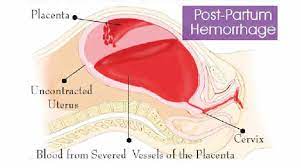However, postpartum haemorrhage, called PPH and usually defined as a blood loss of 500 ml or more within 24 hours after birth include loss of tone in the uterine muscles, a bleeding disorder, or the placenta failing to come out completely or tearing.
According to the World Health organisation, PPH is the leading cause of maternal mortality in low-income countries and the primary cause of nearly one-quarter of all maternal deaths globally.
WHO says most deaths from PPH could be avoided through the use of prophylactic uterotonics during the third stage of labour and by timely and appropriate management.
Speaking with NAN in an interview, reproductive health specialist, Dr Habeeb Salami, said blood loss during and after delivery is a very common complication in Nigeria, noting that it accounts for about 11.3 per cent of maternal mortality in the country.
He said, “There are some things that can cause bleeding during and after delivery which we refer to as intrapartum and postpartum haemorrhage.
“There is also antepartum haemorrhage, which is bleeding during pregnancy, but it is important to state that they can all lead to death.
“However, the most common of these complications is postpartum haemorrhage and a number of things can cause it.
“It can be caused by what we call placenta abruption, which occurs when the placenta detaches from the inner wall of the womb and also placenta previa, which occurs when a baby’s placenta partially or totally covers the mother’s cervix.
“There are other causes but one that is common in our environment is when a woman has a weak womb which usually occurs when a woman has had multiple pregnancies and children.
“The womb is usually weak and unable to contract thus resulting in a lot of bleeding.
“Another common cause of PPH in our environment is prolonged labour and infection, especially when the labour room or instruments used for delivery are not clean enough.
source: Medicalworldnigeria

 Medical experts in maternal health say addressing the challenge of blood loss during and after delivery remains crucial to reducing the high maternal mortality rate in Nigeria. Blood loss during and after delivery, they said, is still a major cause of maternal mortality, noting that efforts to reduce the death of women from childbirth complications must address issues of blood loss.
Medical experts in maternal health say addressing the challenge of blood loss during and after delivery remains crucial to reducing the high maternal mortality rate in Nigeria. Blood loss during and after delivery, they said, is still a major cause of maternal mortality, noting that efforts to reduce the death of women from childbirth complications must address issues of blood loss.







